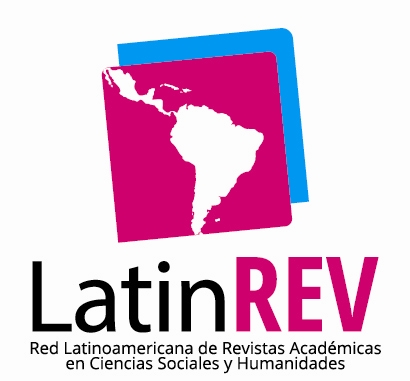La inteligencia artificial en el ámbito legal: impacto en la estabilidad laboral de los profesionales del Derecho
DOI:
https://doi.org/10.62325/10.62325/yachana.v13.n2.2024.936Palabras clave:
Inteligencia artificial, Derecho laboral, EmpleoResumen
La presente investigación analiza el impacto de la inteligencia artificial (IA) en el ámbito de la estabilidad laboral de los profesionales del Derecho, con un enfoque particular en las ventajas, desafíos y percepciones asociadas a esta tecnología disruptiva. A través de una revisión bibliográfica exhaustiva, una encuesta a 40 profesionales del Derecho en la ciudad de Riobamba, Ecuador, y el análisis de casos de implementación de IA en los sistemas judiciales de Argentina y Colombia, se buscó comprender las implicaciones en la práctica legal y la estabilidad laboral de los profesionales. Los resultados revelan que la IA ofrece ventajas significativas en términos de eficiencia, precisión y accesibilidad en el ámbito legal, pero también conlleva desafíos importantes relacionados con sesgos algorítmicos, transparencia, privacidad y adaptación de marcos legales y éticos. Las percepciones de los profesionales encuestados reflejan tanto expectativas positivas como preocupaciones legítimas sobre el impacto de la IA en su práctica y estabilidad laboral. Los casos de Prometea en Argentina y PretorIA en Colombia demuestran los beneficios de la IA para mejorar la eficiencia y asistir en la toma de decisiones en los sistemas judiciales, pero también resaltan la importancia de una implementación gradual, colaborativa y basada en marcos éticos y legales claros. Se concluye que el impacto de la IA en el derecho al trabajo de los profesionales del Derecho requiere un enfoque integral y multidisciplinario, que promueva un uso responsable y centrado en las personas, al tiempo que se mitigan los riesgos y se protegen los derechos fundamentales.
Descargas
Citas
Ashley, K. D. (2017). Artificial Intelligence and Legal Analytics: New Tools for Law Practice in the Digital Age. Cambridge University Press.
Barfield, W., & Pagallo, U. (2019). Handbook on the Law of Artificial Intelligence. Edward Elgar Publishing.
Brooks, C., Gherhes, C., & Vorley, T. (2020, March). Artificial intelligence in the legal sector: pressures and challenges of transformation. Cambridge Journal of Regions, Economy and Society, 13(1), 135-152. https://doi.org/10.1093/cjres/rsz026
Bughin, J., Hazan, E., Ramaswamy, S., Chui, M., Allas, T., Dahlström, P., & Trench, M. (2017, June). Artificial intelligence: The next digital frontier? McKinsey&Company. https://tinyurl.com/yv33dnnh
Cisneros, C., Jiménez, R., & Andrade, D. (2023). El impacto de las nuevas tecnologías y la inteligencia artificial en el empleo del sector jurídico. Universidad y Sociedad, 15(S1), 637-646. https://doi.org/10.1093/cjres/rsz026
Corvalán, J. G. (2021). PROMETEA: Inteligencia Artificial para transformar organizaciones públicas. Banco Interamericano de Desarrollo. http://dx.doi.org/10.18235/0002378
Estevez, E., Fillottrani, P., & Linares, S. (2020). PROMETEA: Transformando la Administración de Justicia con herramientas de Inteligencia Artificial. Banco Interamericano de Desarrollo. https://tinyurl.com/23xtaw47
Granados, J. (2022). Análisis de la inteligencia artificial en las relaciones laborales. CES Derech, 13(1), 111-132. https://dx.doi.org/10.21615/cesder.6395
Lee, N., Resnick, P. & Barton, G. (2019, May 22). Algorithmic bias detection and mitigation: Best practices and policies to reduce consumer harms, Brookings Institution. https://tinyurl.com/2uu7ce64
Llano, F. (2022). El derecho ante el nuevo paradigma transhumanista de la era digital. Revista Jurídica de Asturias, 45, 39-53. https://hdl.handle.net/11441/143556
Mitchell, T. M. (1997, March 1). Machine learning. McGraw-Hill.
Muller, C. (2020, June 24). The impact of artificial intelligence on human rights, democracy and the rule of law. Council of Europe [Report]. https://tinyurl.com/yxcx427z
Nieva, J. (2018). Inteligencia artificial y proceso judicial. Marcial Pons. https://tinyurl.com/ax9bjbb5
Pietropaoli, I., Anastasiadou, I., Gauci, J.-P., & MacAlpine, H. (2023). Use of Artificial Intelligence in Legal Practice. British Institute of International and Comparative Law. https://tinyurl.com/2va3d9j9
Ruslan, S. (2023). Challenges and Opportunities for Legal Practice and the Legal Profession in the Cyber Age. International Journal of Law and Policy, 1(4). https://doi.org/10.59022/ijlp.59
Russell, S. J., & Norvig, P. (2010). Inteligencia Artificial. Un enfoque modern (2 a ed.). Prentice Hall. https://tinyurl.com/2hpkufpy
Scherer, M. (2019) AI and Legal Decision-Making: The Wide Open. Journal of International Arbitration, 38(1), 95-112. https://doi.org/10.54648/joia2019028
Solar, J. (2020). La inteligencia artificial jurídica: nuevas herramientas y perspectivas metodológicas para el jurista. Revus, 41. https://doi.org/10.4000/revus.6547
Suarez, P. (2022). The Challenge of the Regulation of Artificial Intelligence in the Judicial System and its Environment. Revista Jurídica Portucalense, 2(Número especial), 144–157. https://tinyurl.com/2cspmtpn
Surden, H. (2019, Summer). Artificial Intelligence and Law: An Overview. Georgia State University Law Review, 35(4), 1305-1337. https://ssrn.com/abstract=3411869
Susskind, R., & Susskind, D. (2015). The Future of the Professions: How Technology Will Transform the Work of Human Experts. Oxford University Press. https://tinyurl.com/pev4zwww
Valero, C. (2021). Derecho e Inteligencia Artificial en el mundo de hoy: escenarios internacionales y los desafíos que representan para el Perú. THEMIS Revista de Derecho, (79), 311-322. https://doi.org/10.18800/themis.202101.017
Verheij, B. (2020). Artificial intelligence as law: Presidential address to the seventeenth international conference on artificial intelligence and law. Artificial intelligence and law, 28(2), 181-206. https://doi.org/10.1007/s10506-020-09266-0
Walters, R., & Novak, M. (2021). Artificial Intelligence and Law [Abstract]. Cyber Security, Artificial Intelligence, Data Protection & the Law (pp. 39-69). Springer. https://doi.org/10.1007/978-981-16-1665-5_3
Winfield, A. F., & Jirotka, M. (2018, November 28). Ethical governance is essential to building trust in robotics and artificial intelligence systems. Philosophical Transactions of the Royal Society A: Mathematical, Physical and Engineering
Sciences, 376(2133), 20180085. https://doi.org/10.1098/rsta.2018.0085
Zhong, H., Xiao, C., Tu, C., Zhang, T., Liu, Z., & Sun, M. (2020). How does NLP benefit legal system: A summary of legal artificial intelligence. Proceedings of the 58 th Annual Meeting of the Association for Computational Linguistics, pp. 5218-5230, July 5-10. https://doi.org/10.48550/arXiv.2004.12158
Publicado
Cómo citar
Número
Sección
Licencia
Derechos de autor 2024 Yachana Revista Científica

Esta obra está bajo una licencia internacional Creative Commons Atribución-NoComercial 4.0.





















